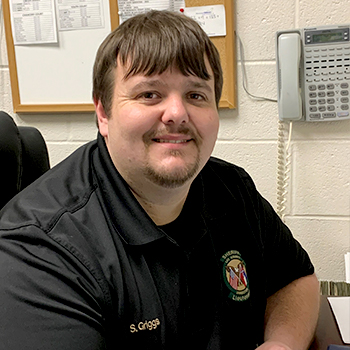Tupelo, MS 38804
For emergencies dial 911
Main: (662) 432-2600
Dispatch: (662) 432-2622
Adult Jail/Corrections: (662) 432-2632
Fax: (662) 841-9044
For emergencies dial 911
Main: (662) 432-2600
Dispatch: (662) 432-2622
Adult Jail/Corrections: (662) 432-2632
Fax: (662) 841-9044
The Lee County-Tupelo Juvenile Detention Center opened on February 26, 2001. The facility can securely house twenty-two juveniles. This center also houses juveniles from nine additional counties.
The mission of the Lee County-Tupelo Juvenile Center is to provide leadership for change for youth, family units, and communities. Accountability is a vital component and each juvenile will be provided with legitimate, alternative pathways to adulthood with equal access. Public safety is a principal concern in all our practices and policies as well as the safety and welfare of each juvenile in our care. We will operate with professionalism, competence, and integrity and will treat all people in a fair, consistent, and honest manner in the performance of our duties.
510 N. Commerce Street
Tupelo, MS 38804
Contact Lt. Steven Griggs
(662) 432-2685

Visitation last for only fifteen (15) minutes. Family visitation is non-contact and must be scheduled twenty-four hours in advance. An appointment may be made Monday – Friday from 8:00am until 5:00pm by calling 662-432-2613 or (662) 432-2685.
Visits are scheduled for every twenty (20) minutes. (Example: 9:00, 9:20, 9:40)
Visitation is held three days per week:
Tuesday 9am – 11am/1pm – 4pm
Thursday 9am – 11am/6pm – 9pm
Saturday 9am – 11am/1pm – 4pm/6pm – 9pm
In order to maintain contact with family and community, juveniles may correspond with persons outside the facility. Certain restrictions will apply in order to maintain facility security and safety for juveniles and staff. All correspondence, other than legal documents, must be mailed.
Mail (letter or postcard) must be sent to 454 North Commerce Street, Tupelo, MS 38804. Include the name of the juvenile in the address. The letter/postcard must have a return address of the sender.
Each juvenile will have equal and adequate access to a telephone. Juveniles are allowed to make collect calls. If your phone is not able to accept collect calls you may call 1-800-682-0707 to enable collect calling.
Juveniles may retain the following items of personal property: legal documents; family pictures (not to exceed three); correspondence; dentures, and prescription eyewear.
They are also allowed softback books (pre-approved) and playing cards. The juveniles are provided t-shirts, underwear, shoes, socks, hygiene products, and other necessary items.
The Learning Center setting is designed to teach juveniles how to work in a professional environment with the highest behavioral expectations. The juveniles work in the LC from 9 am to 12noon and from 1pm to 3pm five days a week with no distractions. Positive reinforcement for participation in academic activities and appropriate behaviors is implemented on a daily basis and then again at the end of the academic week.
The educational staff includes an Education Coordinator, who is a licensed administrator and several veteran teachers, who are certified by the MS Department of Education. The Counselor is a licensed certified social worker through the MS Board of Examiners for Social Work and Marriage and Family Therapist. Part-time personnel, which include an art literacy instructor, reading specialist, math specialist, and visual-motor development instructor, are licensed by the MS Dept of Education. There is a dropout prevention position and the health instructor is a registered nurse with a Bachelor of Science in Nursing degree and is licensed by the MS Board of Nursing.
When a juvenile has been to court and the determination has been made that the juvenile will be detained, the education coordinator contacts the juvenile’s school for books and assignments. If a juvenile has an Individualized Education Plan (IEP), the education coordinator contacts the appropriate school personnel. For juveniles who have a Special Education ruling or a 504 Plan, the school sends homebound instructors to the Center for instructional time with juveniles.
Because the juveniles are at different instructional levels, each juvenile receives individualized instruction. The reading specialist assists juveniles who need more instruction in reading. The reading specialist administers the Gates MacGinitie reading assessment to determine vocabulary and comprehension level.
The Department of Education requires students to be assessed with Subject Area Testing Program on four content areas: Algebra 1, Biology 1, English II (both multiple-choice assessment and writing assessment) and U.S. History. Passing these subject area tests are a requirement for graduation.
Academic instructors will provide tutoring to juveniles who have been identified with academic deficits in English, Maths, Science,
When a juvenile is detained and is not enrolled in school, or has been suspended or expelled, the education coordinator administers a diagnostic and prescriptive assessment for grade-level placement. The juvenile works on his/her grade level using the Odyssey Ware computer software. This enables the juveniles to master more grade-level skills so that they achieve at a higher level when they return to school.